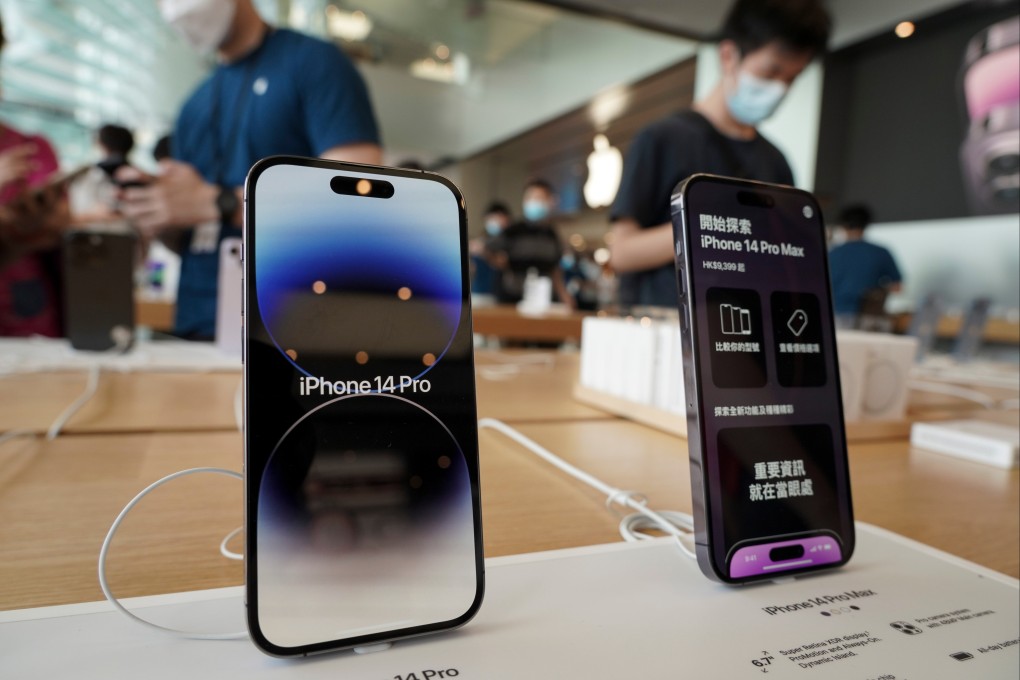Advertisement
Apple leads China’s fourth-quarter smartphone sales as market posts fifth straight year of decreased consumer demand in 2022
- Apple seized a 23.7 per cent share in China’s smartphone market in the December quarter on the back of demand for its iPhone 14 models
- Overall China smartphone sales in 2022 saw Apple outperforming the market with just a 3 per cent year-on-year decrease
Reading Time:3 minutes
Why you can trust SCMP
5

Ben Jiangin Beijing
Apple topped smartphone sales in China in the fourth quarter of 2022, enabling the US tech giant to rank as the country’s No 2 brand for a full year for the first time, according to the latest data from Counterpoint Research, as the industry’s biggest market continued to struggle from weak demand.
China’s smartphone sales declined 15 per cent in the three months ended December 31, marking the fourth consecutive quarter of double-digit decreases in 2022 amid a cooling domestic economy and a surge in Covid-19 cases after the central government relaxed its draconian pandemic controls last month.
Macroeconomic headwinds, along with coronavirus-related disruptions since 2020, have weakened consumer demand in China and led to a smartphone sales slump for the fifth year in a row, according to Archie Zhang, a Beijing-based analyst at global tech research firm Counterpoint, in a report published on Friday.
Advertisement
“Since the spring of 2022, many cities in China … were being subjected to Covid-19 restrictions, which negatively [affected] consumer sentiment and further delayed smartphone replacements,” Zhang said.
The latest industry data from Counterpoint reflects cautious optimism for the near-term prospects of all vendors competing in the world’s largest smartphone market.
Advertisement
Advertisement
Select Voice
Choose your listening speed
Get through articles 2x faster
1.25x
250 WPM
Slow
Average
Fast
1.25x
